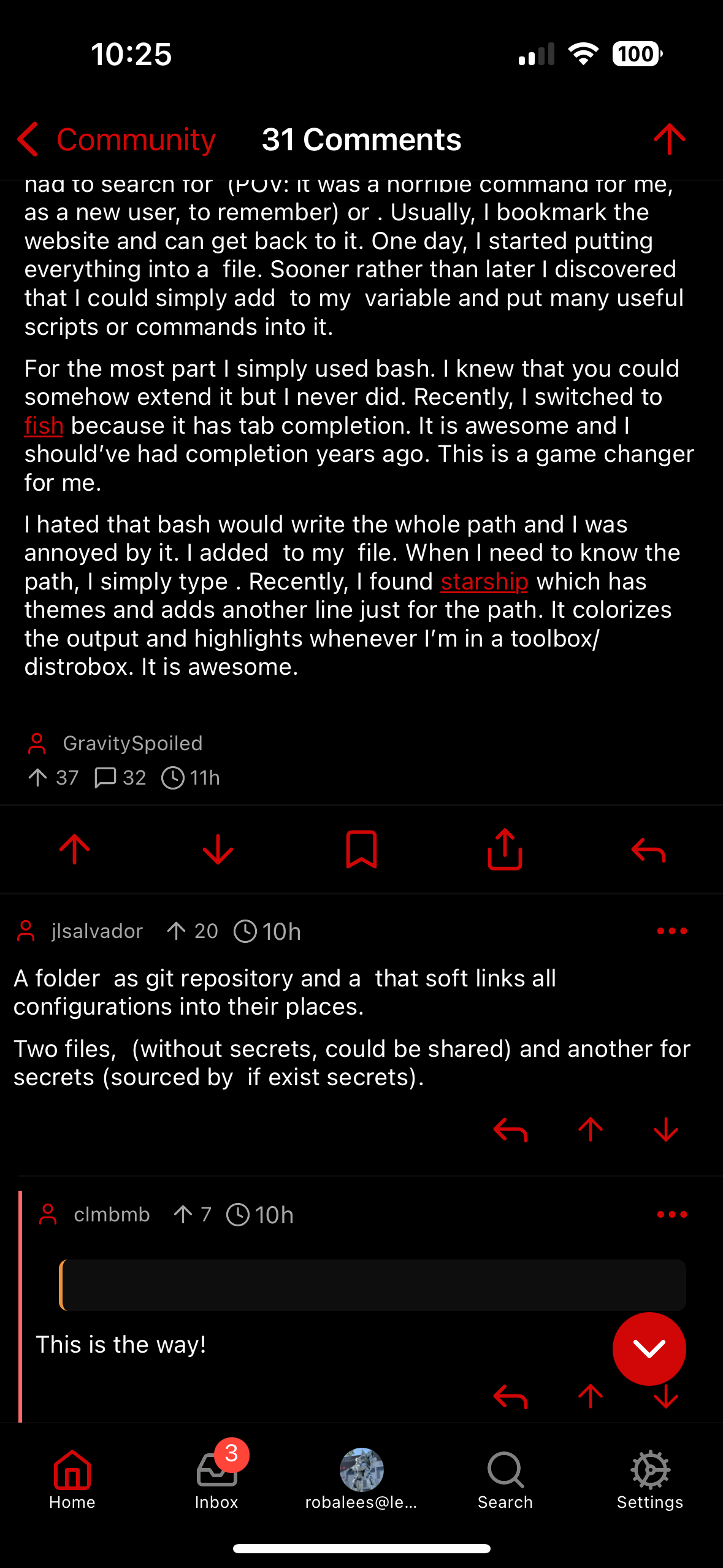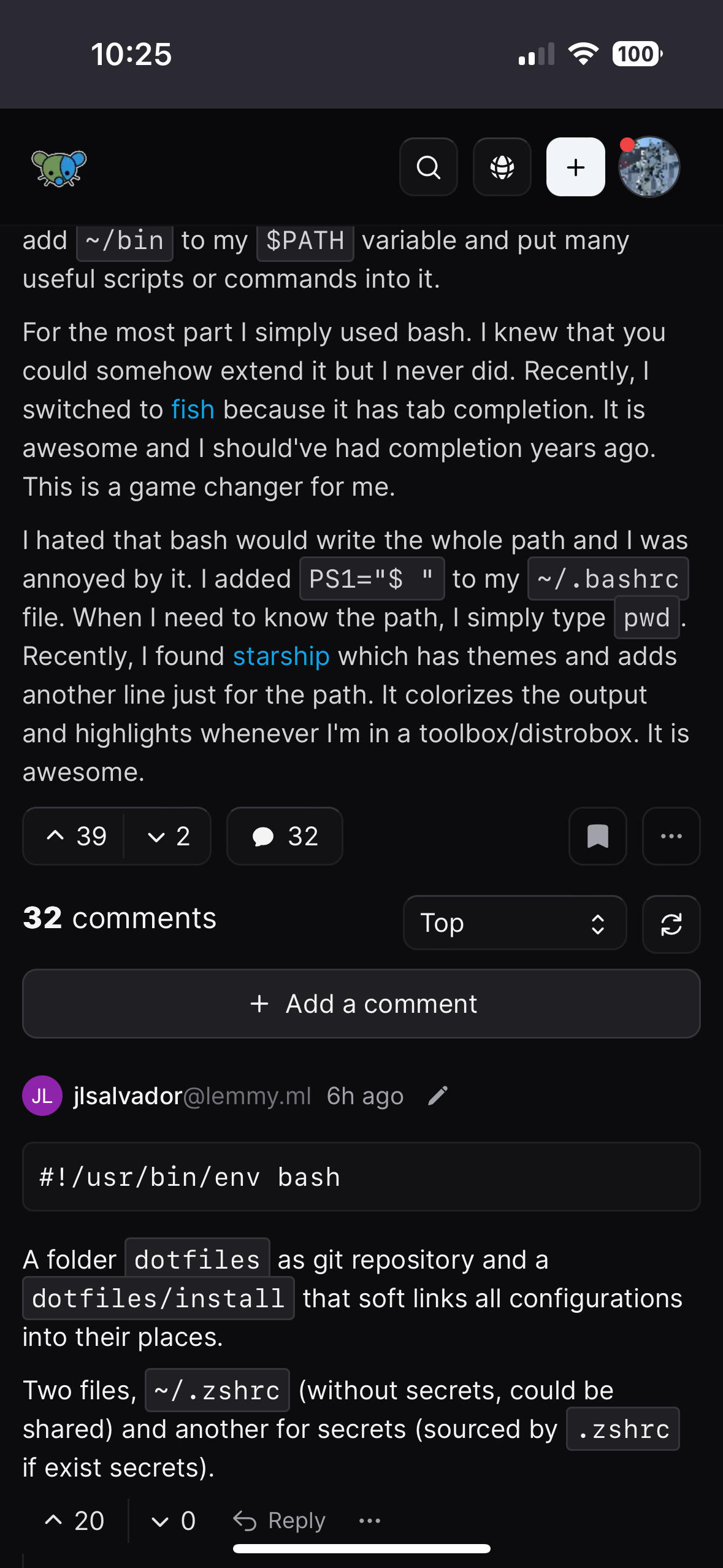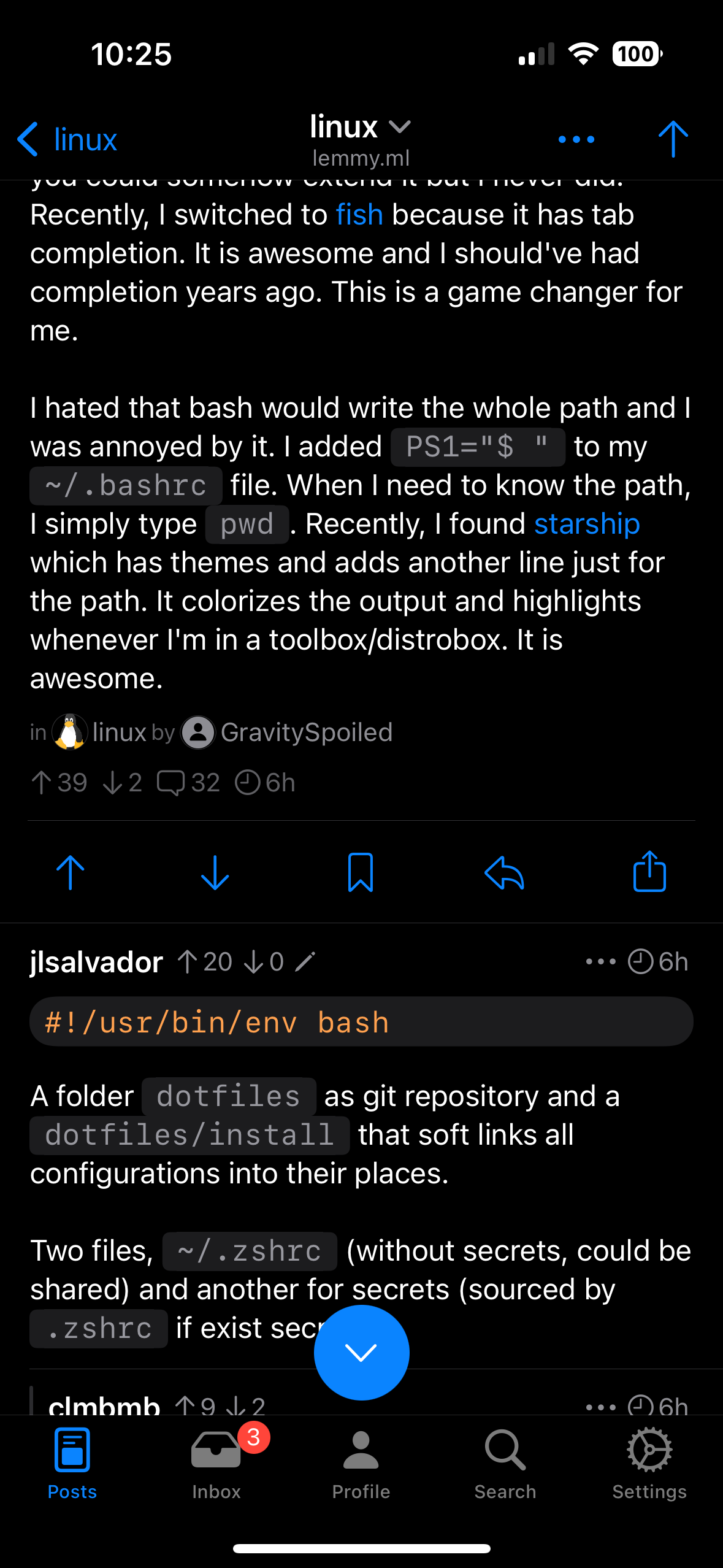Gonna be following this posts comments for some tips! I’m running Proxmox on an old 2012 Mac Mini which I’ve Frankenstein’d with an SSD and RAM as much as I can, the NIC is dead and I’ve resorted to USB Ethernet. I’ve not messed with exposing my server externally, I’m intrigued but also have a router with OVPN VPN network capability. I use a LXC for Plex (Debian) and a VM (Debian again) with Docker installed. Docker runs Haugene (look it up for VPN torrents), Screeps server and WikiJS. I have a Raspberry Pi 3B running PiHole, might set it up as a backup and use the Proxmox server as the primary. But I’m definitely ready for new hardware soon and I’d like to look into NAS storage, right now I’m using a rather sketch 4TB external USB drive for media (shit I don’t care about).
Similar to Glide said above, wanted a space sim and realize it’s more of a survival game. On the opposite end I played a little Elite Dangerous which was WAY TOO INVOLVED space sim!
One of those games I’m glad I bought at launch, although I’ve fired it up 3-4 times and struggled with the mechanics… it’s nice to know it’s still evolving and I can always start fresh again with the new content. If I wasn’t so deep into Helldivers I’d give it another go right now… but Democracy can’t wait!
This is probably the one for me, really digging the level of customization and it’s easy to navigate.
Thanks everyone for the comments so far, I’m including 3 screenshots of how a post looks in all 3 locations (Memmy, Photon & Arctic)
I think Arctic is the winner for me, I like the layout and settings. Also Memmy removed the swipe from left to access subscribed communities and it’s been impossible to get out of the habit, Arctic seems to do it!



Memmy doesn’t like Markup it seems 🤷🏻♂️ happy to post plain text logs if that helps
Relevant log outputs for anyone intrigued
NETDEV WATCHDOG: enp1s0f0 (tg3): transmit queue 0 timed out
tg3 0000:01:00.0 enp1s0f0: transmit timed out, resetting
Link is down... Link is up at 1000 Mbps, full duplex
Thank you @CurbsTickle@lemmy.world
I'll probably spring for the Anker USB-A adapter, it'll be useful to have any way.
After days of testing, a mix of Direct Playing 4K DoVi/HDR10 (HEVC Main 10) on my 4K Apple TV and different media on other devices during the day and constant ping, mtr and iperf3across devices, I've determined this problem is totally random lol! Went 48 hours of TBs transferred between devices with iperf and a day of content playing, no problem, then randomly I'll see Link is down on the NIC and I can't ping it until it comes back up like it did this morning.
Might find a Linux community to share my syslog and see if any other suggestions for troubleshooting exist and make sure it isn't something else with my network/unmanaged switches. But I might be burning time/energy on broken hardware and time to give up on it.
@phanto@lemmy.ca I'll see if era ships to the US and make sure to be extra cautious of the listing description. Might also see if I can find a US equivalent.
Fell down a hole looking at the Optiplex machines last night. My desk is tiny and I'm already rocking this Mac Mini, a Mac Studio, work laptop and a pi3B running PiHole. So I'm leaning towards a micro, although I might be able to get away with a small form factor instead. I also have a MBP (“Core i7” 2.8 15" Early 2013) that I could wipe and use as a temporary measure while I save for something new. Also bought a pi4B with 4GB of RAM laying around and not used, so I could always split up services, whack Plex on the Studio and use what I've got for a while longer.
Right now I might go with @phanto@lemmy.ca suggestion to find a USB NIC adapter to keep this beast running or at least determine if it's just the NIC and not the board. Any suggestions for a Debian friendly USB to ethernet adapter appreciated. I also have the Apple thunderbolt to ethernet adapter, might keep trying to get that working. Not seen a single dropped ping overnight with the builtin NIC, so it appears to be super intermittent or when I start to watch something on Plex.
I'm putting some money aside for an 10th or 11th gen i7 at minimum, I feel like I'd like the option for 4K transcoding if needed. Looks like I can put a 2.5" SATA in a micro (7090?), which would be awesome seeing as I have a SATA 1TB SSD in the mini right now I'd like to cannibalize.
My wife and I have had some bad experiences with Ebay in the past, but I'm willing to go back if I can find a good deal on an off lease Optiplex. Any other suggestions on places to look for off lease options that I can hopefully trust (US)?
Also please be brutally honest if you think I should just get a 6-8th gen Optiplex and not bother with the newer CPU. Outside of Plex and torrents, I'd like to eventually run Node.js, VSC Code Server, Pi-hole, home assistant, some storage or cloud access and a Screeps Server. Also playing with Blender, but I doubt I'll be able to do much with rendering with any of these machines.
Not a lame suggest at all, this is probably saner option than me throwing $$$ on an 11th gen i7. Doing some research and I'm curious if you have a recommendation on adapter? I know the ASIX AX88179 is suggested and the Plugable adapter uses that chipset. I'd prefer to get something I know will work plug and play, then I can continue testing to ensure it's just the NIC and nothing else. I also have an Apple Thunderbolt to Ethernet adapter, I've not invested too much effort into troubleshooting, it doesn't seem to work natively out the box with Proxmox/Debian.
Thanks for the suggestions, I also tagged you in a post before I saw this. I'll start researching the off lease options and I don't hate the idea of a Dell 7050 with an i7. Would be amazing to make use of the SSD still. And really appreciate the advice with going with Proxmox, the UI is a million times better than trying to use OMV and made troubleshooting so much easier!
Thank you for answering my questions, I spent some time over the weekend performing testing. Sadly I suspect all my problems stem from my NIC failing. The loss of IP that I was seeing in OMV is still happening in Proxmox. Now trying to decide next steps, I can either keep throwing money at it and get an external Ethernet solution with compatible drivers or finally put this Mini to rest. I’ll probably make a post on the selfhosting community and see if anyone has any recommendations for hardware. Little peeved I bought the RAM and have this SSD with nowhere to make use of them. Maybe I can find a suitable machine that can use them, but I’m gonna guess they’ve aged out of the CPUs I’d need for better performance. But I am very happy with the Proxmox, LXC and Debian suggestions.